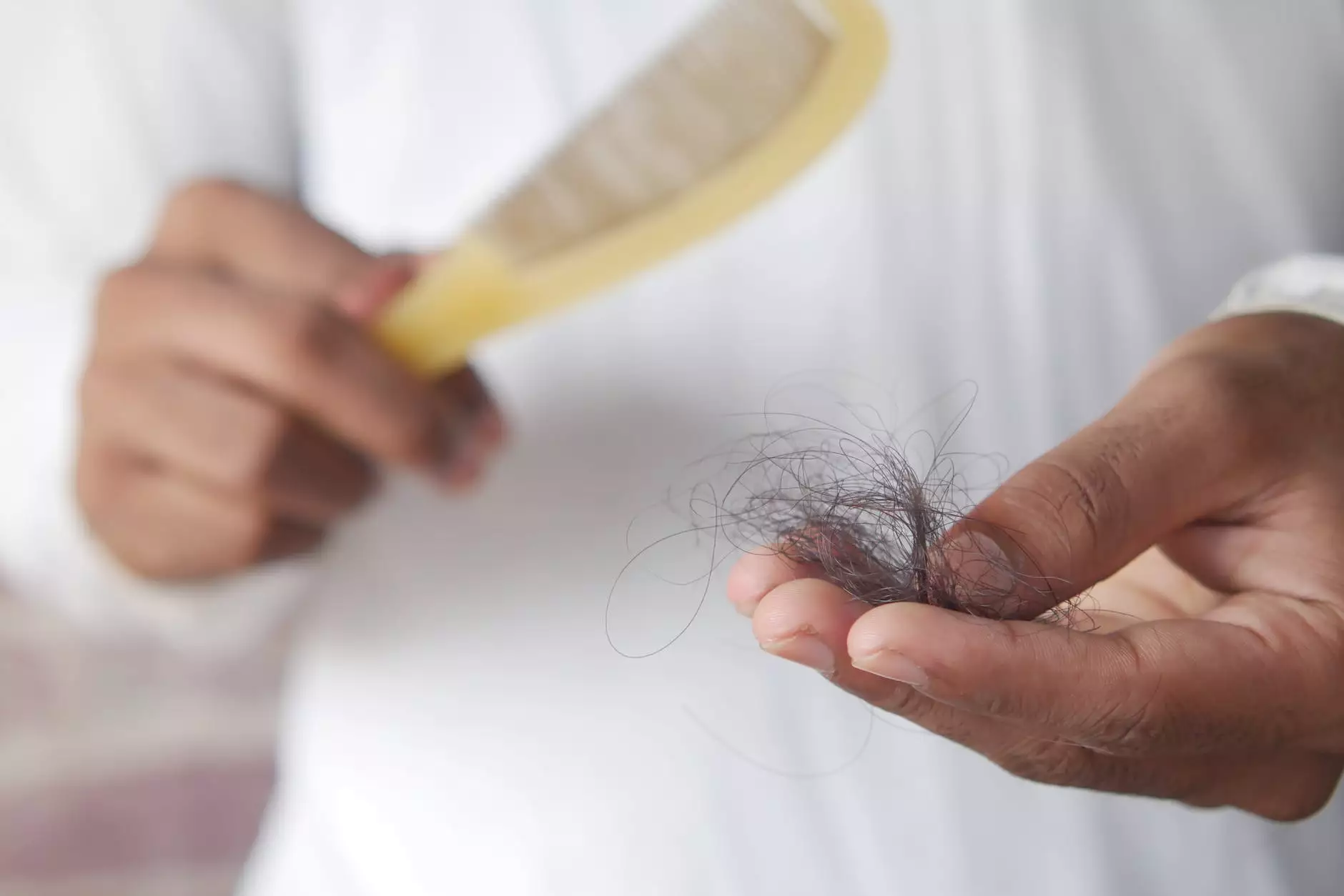Types of Alopecia - Miami Hair Institute

Understanding Alopecia: What You Need to Know
Alopecia is a condition that affects millions of people worldwide. It is characterized by sudden hair loss, which can happen in various forms and severity. At Miami Hair Institute, under the expertise of Dr. Arthur F. Smith, we specialize in diagnosing and treating different types of alopecia, offering effective solutions to restore hair and boost your confidence.
The Different Types and Their Symptoms
1. Androgenetic Alopecia
Androgenetic alopecia, also known as male or female pattern baldness, is the most common form of alopecia. It occurs due to a combination of genetic and hormonal factors. In men, it often leads to receding hairline or bald spots on the crown, while women may experience thinning of hair on the top of the scalp.
2. Alopecia Areata
Alopecia areata is an autoimmune disorder where the immune system mistakenly attacks the hair follicles, leading to patchy hair loss. It can occur on any part of the body, including the scalp, eyebrows, and even eyelashes. In some cases, total hair loss (alopecia totalis) or loss of all body hair (alopecia universalis) can occur.
3. Traction Alopecia
Traction alopecia is primarily caused by excessive tension or pulling of the hair, often due to hairstyles that involve tight braids, ponytails, or extensions. Over time, this constant pulling can damage the hair follicles and lead to permanent hair loss in the affected areas.
4. Telogen Effluvium
Telogen effluvium is a type of temporary hair loss experienced by both men and women. It occurs when a large number of hair follicles prematurely enter the resting phase of the hair growth cycle, resulting in noticeable shedding. This type of alopecia is commonly triggered by physical or emotional stress, hormonal changes, or certain medications.
Causes and Risk Factors
The causes of alopecia vary depending on the specific type. Androgenetic alopecia is primarily influenced by genetic factors and hormone levels, while alopecia areata is thought to be an autoimmune disease triggered by a combination of genetic and environmental factors.
Traction alopecia is often a result of repetitive hair styling practices, while telogen effluvium can be caused by a variety of factors such as severe illness, surgery, childbirth, or emotional stress.
Treatments and Solutions
At Miami Hair Institute, we offer a range of treatments and solutions tailored to address each type of alopecia.
1. Medications
For androgenetic alopecia, FDA-approved medications like minoxidil and finasteride can help slow down hair loss and promote regrowth. Corticosteroids may be injected directly into the affected areas for alopecia areata.
2. Hair Transplantation
For more advanced cases of hair loss, hair transplantation offers a long-lasting solution. Our skilled surgeons use innovative techniques to harvest healthy hair follicles from donor areas and transplant them into thinning or balding areas.
3. Platelet-Rich Plasma (PRP) Therapy
PRP therapy involves drawing a small amount of your blood, processing it to concentrate the platelets, and then injecting the platelet-rich plasma back into the scalp. This treatment stimulates hair growth and improves the overall condition of the scalp.
4. Lifestyle Changes and Hair Care
In many cases, adopting a healthy lifestyle, managing stress, and practicing good hair care habits can help prevent or reduce the severity of hair loss. Our experts provide personalized recommendations to promote hair health and prevent future hair loss.
Regain Your Hair and Confidence at Miami Hair Institute
If you are experiencing hair loss or any type of alopecia, trust the expertise of Dr. Arthur F. Smith and the team at Miami Hair Institute. We combine cutting-edge technology with years of experience to provide effective hair restoration solutions. Contact us today to schedule a consultation and take the first step towards regaining your hair and confidence.
Disclaimer: The information provided on this page is for educational purposes only and should not be considered medical advice. Consult with a qualified healthcare professional for personalized diagnosis and treatment options.




